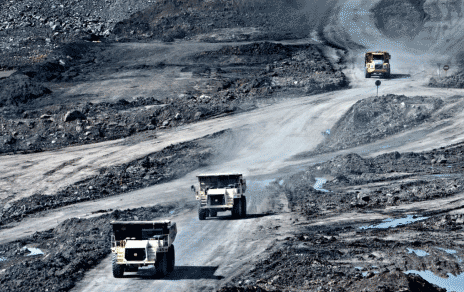Nornickel, struggling to import equipment to sanctions-hit Russia, will close its Arctic copper plant and build one in China with an unnamed partner to gain direct access to the world’s biggest metals market, it said on Monday.
The project is a major shift for Nornickel, which is simultaneously adapting to sanctions on Russia and to changing buying preferences in its main sales destination, Asia. Until now, Nornickel has mainly sold refined copper, used in power and construction.
“We are transferring our environmental problems, settlement problems, market access problems, problems with customising our goods for the consumer market, in this case, to China, where they will be solved more efficiently,” CEO Vladimir Potanin said in an interview with the Interfax news agency, published on Monday.
Potanin said Nornickel would create a joint venture in China to build the plant, which should be constructed by mid-2027, and would supply it with about 2 million metric tons of copper concentrate a year.
China’s copper imports fell by 6.3% in 2023 as domestic production increased, while imports of copper ore and concentrate hit a record-high.
China has become a major destination for Russian companies seeking to export their commodities after the United States imposed sanctions on Russia after it sent its army into Ukraine in February 2022. Asia accounted for 54% of Nornickel’s revenue in 2023.
“This dependence increases as sanctions pressure increases,” Potanin said. “We will not get away from this, but being integrated more into the Chinese economy, we are more protected than if we don’t have this.”
In addition, Nornickel will find other partners to help it enter the battery production business, Potanin said, using Russian lithium deposits and partnering with state nuclear corporation Rosatom for this purpose.
Potanin also said a joint project with German chemicals group BASF in Finland had been put on hold. BASF this month said it had started laying off workers at the site, citing permitting issues from the Finnish authorities.
Sanctions impact
Nornickel, the world’s largest palladium producer and a major producer of high-grade nickel, launched a multibillion-dollar project in October aimed at reducing sulphur dioxide emissions by 45% in Norilsk, Russia’s most polluted city, through a complex capture program.
Nornickel, though not directly targeted with Western sanctions over Moscow’s actions in Ukraine, has changed the timing, cost and configuration of the program several times, highlighting issues over foreign vendors’ refusal to supply to Russia.
“The negative impact of sanctions against Russia’s non-ferrous metals contributed to this decision,” Potanin said. Nornickel has not found a fully import-independent solution for the copper plant to reduce emissions.
This month, Washington and London prohibited metal-trading exchanges from accepting new aluminum, copper and nickel produced by Russia and barred the import of the metals into the United States and Britain to try to disrupt Russian export revenue.
“Now these sanctions have been formalized, but even before this, we, like other producers of Russian raw materials … faced customer refusals and the need to provide discounts.
“This pressure forced us to think about how to get our goods to the distribution market in the right way,” Potanin said. “And one of these non-standard solutions is to transfer part of production to markets of direct consumption.”
Potanin said Nornickel is only generating revenue at 80% of pre-sanctions levels, despite not being targeted directly.
(By Anastasia Lyrchikova, Alexander Marrow and Polina Devitt; Editing by Louise Heavens and Barbara Lewis)
